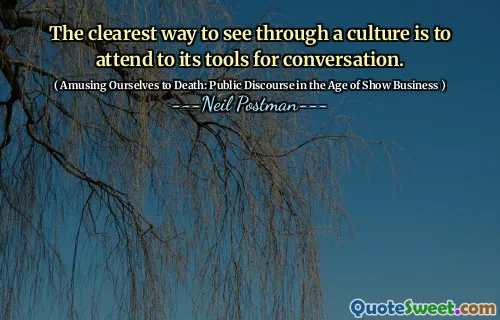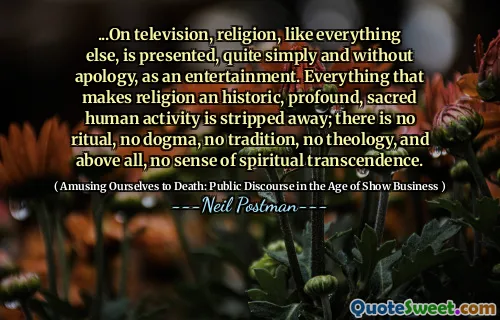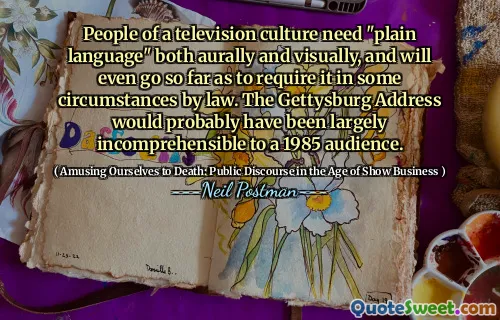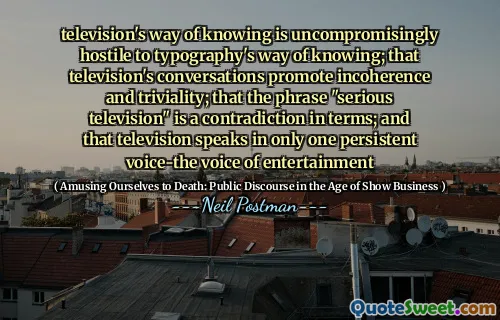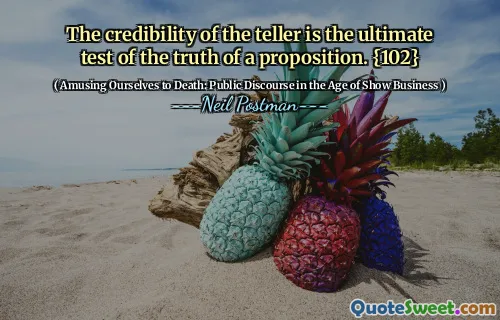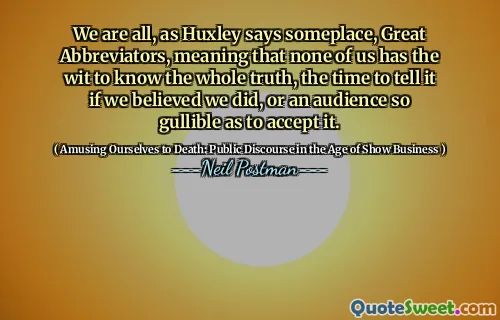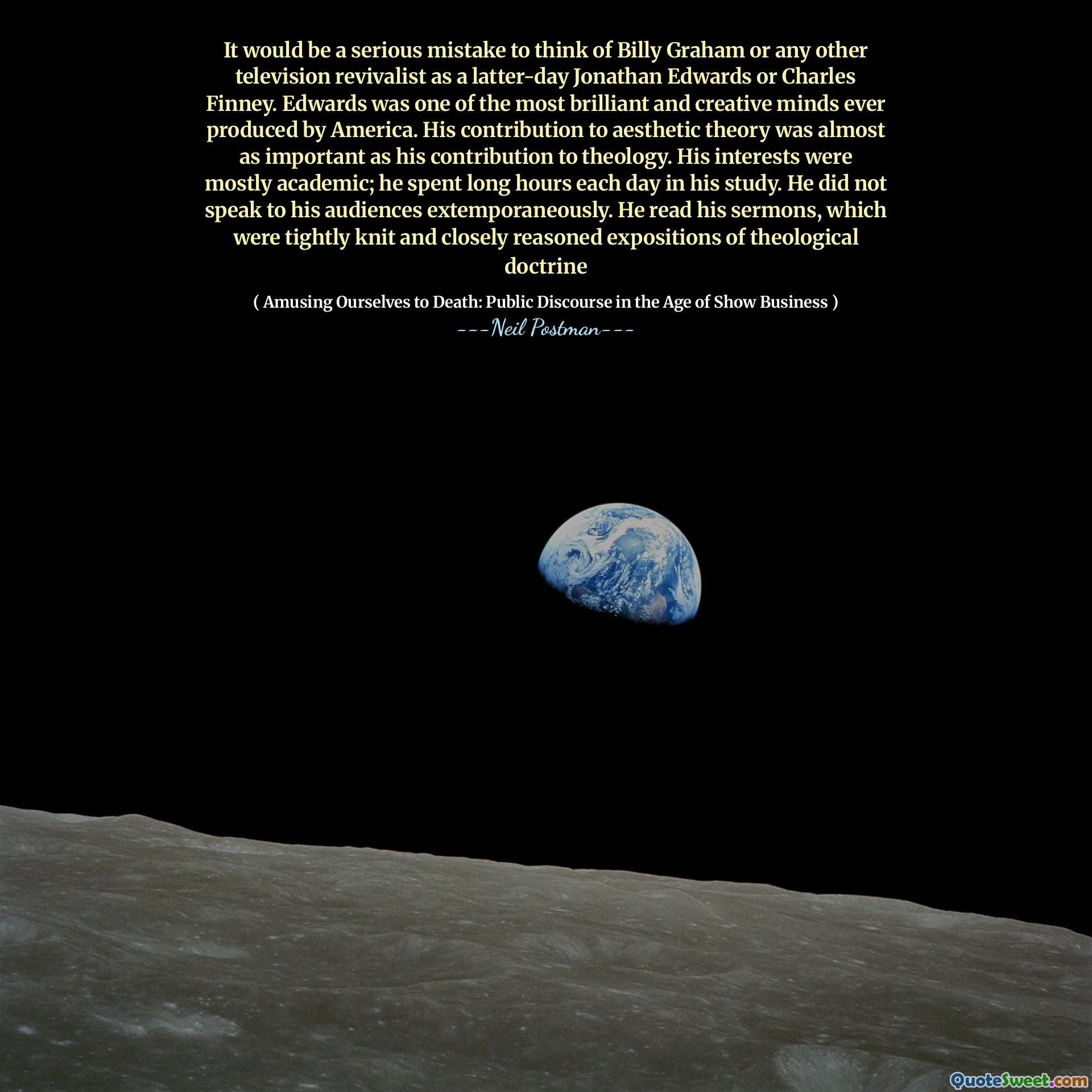
It would be a serious mistake to think of Billy Graham or any other television revivalist as a latter-day Jonathan Edwards or Charles Finney. Edwards was one of the most brilliant and creative minds ever produced by America. His contribution to aesthetic theory was almost as important as his contribution to theology. His interests were mostly academic; he spent long hours each day in his study. He did not speak to his audiences extemporaneously. He read his sermons, which were tightly knit and closely reasoned expositions of theological doctrine
Neil Postman argues that it is a significant error to equate modern television revivalists like Billy Graham with historical figures such as Jonathan Edwards or Charles Finney. Edwards, regarded as one of America's most profound intellectuals, was not only a theologian but also made substantial contributions to aesthetic theory. His approach to preaching was methodical and scholarly, often involving lengthy, carefully crafted sermons that he read from notes rather than delivering extemporaneously.
Postman highlights that Edwards devoted extensive hours to academic pursuits and intellectual study. This contrasts sharply with the style of contemporary revivalists, who often prioritize entertainment over rigorous theological discourse. By acknowledging the differences in approach and substance between these figures, Postman emphasizes the evolution of public discourse from serious theological contemplation to an entertainment-centric model.
